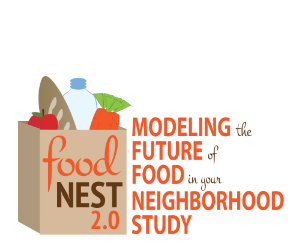Modeling the Future of Food in Your Neighborhood (foodNEST2.0) works to develop strategies that can help guide decision making around efforts to make food systems in the city of Cleveland more equitable. Cleveland is one of the largest urban agriculture cities in the country and has one of the oldest and most successful food policy coalitions. Nonetheless, nearly two out of three Clevelanders live in neighborhoods with limited access to full-service supermarkets and experience extensive inequities in economic opportunities and health status.
The study examines key changes to local food systems, such as supermarket expansion, healthy-eating marketing campaigns, or emergency food assistance programs, in order to develop models that can be used in low-income neighborhoods to build equitable food systems and community health. These computational models will reflect interdependencies among different actors and interventions influencing local food system dynamics in low-resource neighborhoods.
The work of the new grant builds upon the Future of Food in Your Neighborhood Study (or "foodNEST"), which was funded by the National Institutes of Diabetes and Digestive and Kidney Diseases in 2015 to look at how changes in the food retail environment affect community health. Read more about foodNEST 1.0 here.
The computational models developed by foodNEST 2.0 will be linked with other data systems managed by study partners related to emergency food assistance distribution, food retail and sales patterns, information on fruit and vegetable incentive programming, health outcomes data, and regional economic development patterns and statistics. Together, this integrated data platform will support a data-driven approach for evaluating the collective effect of food system tipping points on outcomes related to economic opportunity, food security, and nutrition equity. Read more about foodNEST 2.0 and its core modeling team (CMT) here.


